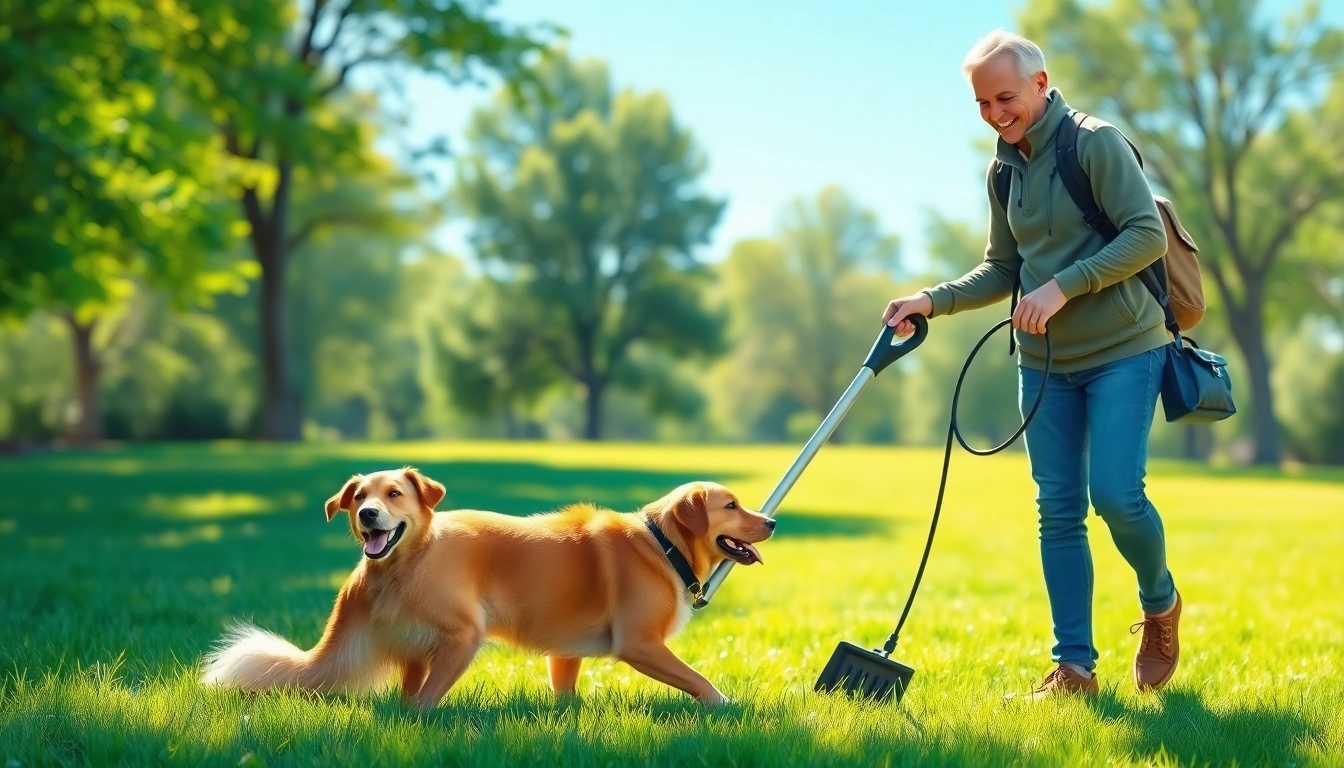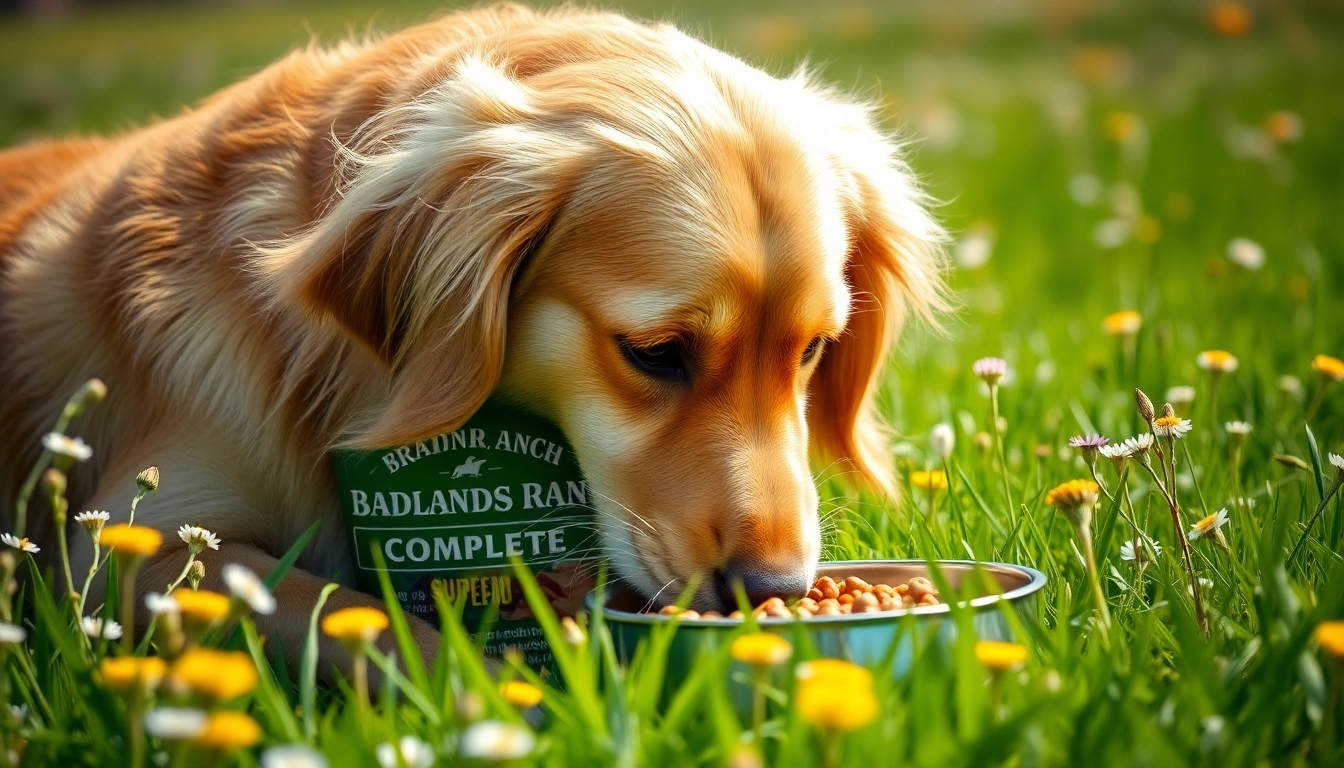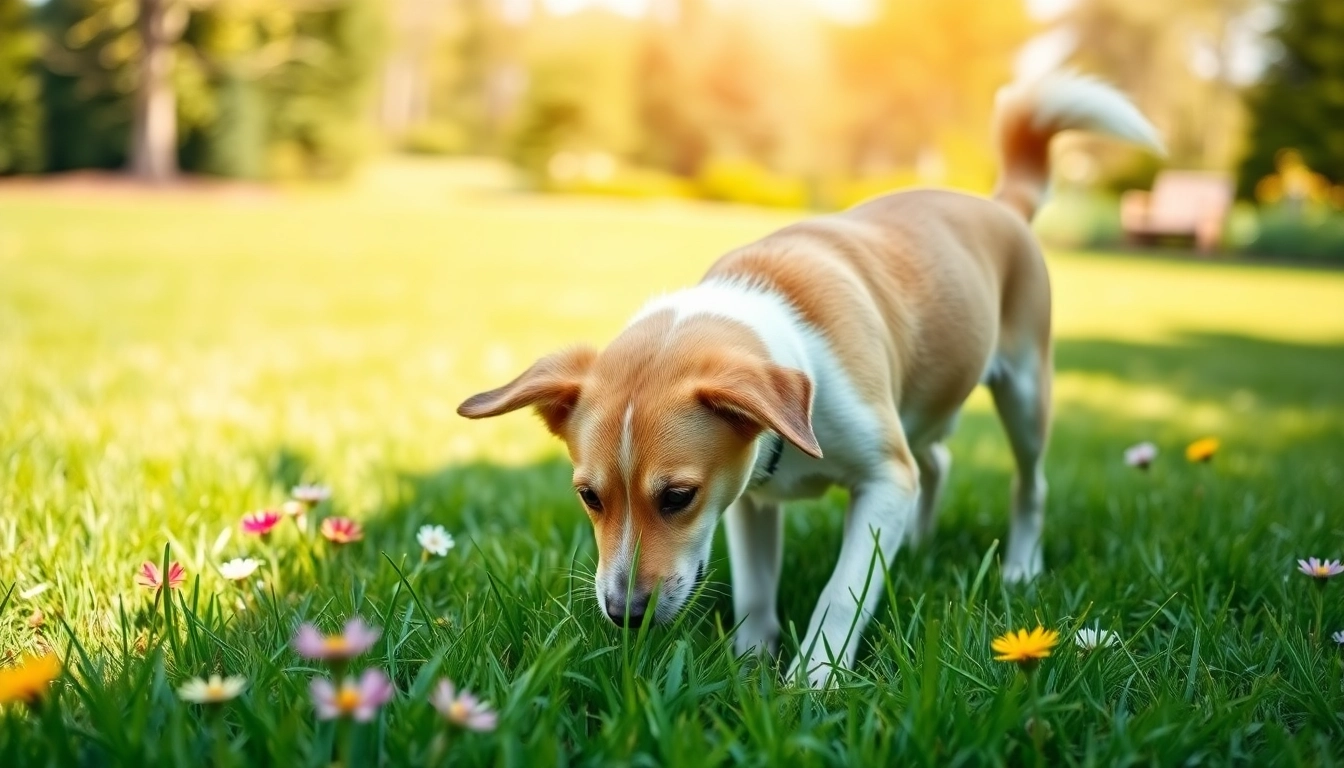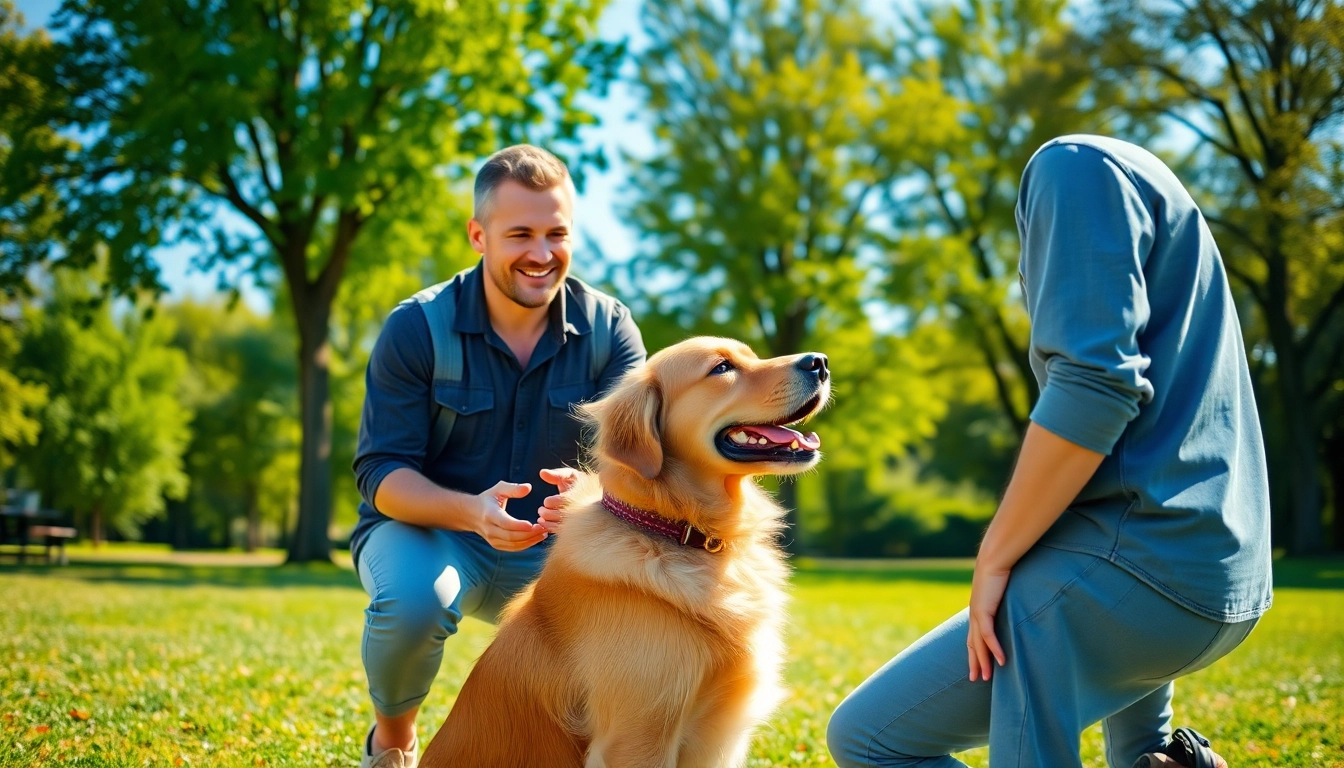Understanding the Importance of Cleaning Up Dog Poop
For dog owners, cleaning up after your pet is not just a matter of hygiene; it’s an essential duty that significantly impacts both public health and the environment. By implementing a responsible routine for clean up dog poop, you contribute to healthier communities. This article explores the critical reasons why pet waste should be regularly and efficiently disposed of, revealing its wider implications beyond personal preference.
Benefits for Public Health
Dog poop can harbor harmful pathogens and parasites that pose risks to both pets and humans. Common parasites found in dog feces, such as roundworms and hookworms, can cause illnesses if ingested or come into contact with open wounds. Moreover, dog feces can contaminate local water sources with harmful bacteria, leading to additional health concerns. Therefore, cleaning up after your pet is a crucial measure to prevent disease transmission.
Environmental Impact
The environmental consequences of leaving dog waste unattended can be severe. As dog poop decomposes, it releases nitrogen and phosphorous, which contributes to nutrient pollution in soil and waterways. This nutrient overload can cause algal blooms, depleting oxygen in water bodies and harming aquatic life. Moreover, dog waste that washes into storm drains can create localized water contamination. Hence, adopting regular cleaning and disposal habits not only benefits pet owners but also the overall ecosystem.
Preventing Pest Infestation
Failing to clean up after your dog can attract pests like rodents, flies, and stray animals, which may carry additional disease. These pests are not only nuisances; they can also lead to a chain of health problems for both dogs and humans. By ensuring that you properly manage your dog’s waste, you help deter these pests from invading your space, creating a cleaner environment.
Tools and Equipment for Dog Poop Cleanup
Cleaning up dog poop effectively requires proper tools and equipment that streamline the process. This section delves into the various options available to ensure you have the right resources for this essential task.
Choosing the Right Pooper Scooper
When it comes to picking the best pooper scooper, there are several factors to consider. The ideal scooper should fit your comfort level, be easy to operate, and be in compliance with any local regulations:
- Long-Handled Scoopers: These allow you to pick up waste without bending over, making them a great choice for those who want to avoid strain.
- Disposable Options: Some owners prefer single-use scooping tools that can be discarded with the waste, offering convenience.
- Durability: Select a scooper that is constructed from durable materials to ensure it can withstand regular use without breaking.
Alternative Cleaning Solutions
In addition to scoopers, several alternative cleaning solutions exist for more challenging situations:
- Biodegradable Poop Bags: These are critical for public spaces and can be composted in many regions.
- Disposable Gloves: Wearing gloves can make the task more sanitary when dealing with waste directly.
- Cleaning Solutions: For messes on surfaces, enzymatic cleaners can break down organic matter and neutralize odors.
Waste Disposal Bags: Pros and Cons
Using waste disposal bags is a common practice among dog owners, but it’s essential to weigh their benefits and drawbacks:
- Pros:
- Convenient to carry and use when on walks.
- Can be sealed for sanitation before disposal.
- Easily available in pet stores or online.
- Cons:
- Plastic bags contribute to landfill waste unless biodegradable options are used.
- Improper disposal can still lead to environmental contamination.
Best Practices for Effective Dog Poop Cleanup
To establish an efficient cleanup routine, it’s vital to integrate best practices into your regular pet care regimen. Here, we outline a comprehensive guide for pet owners to ensure they manage dog waste effectively.
Step-by-Step Cleanup Guide
Follow these straightforward steps for effective dog poop cleanup:
- Prepare your tools before taking your dog out for potty time.
- Use a pooper scooper or bag to pick up the poop immediately after your dog eliminates.
- Seal the waste in a disposal bag to avoid odor and contact with other waste.
- Dispose of the bag in a designated waste bin or composting system if applicable.
- Sanitize your hands and tools after completing the task.
Establishing a Routine
Creating a routine surrounding dog poop cleanup can help make it a natural part of dog ownership:
- Schedule regular walks at consistent times to adhere to your dog’s routine.
- Encourage all family members to participate, ensuring everyone understands the importance of this task.
- Set reminders in your phone to prompt you to check for waste in the yard regularly.
Tips for Yard Maintenance
In addition to regular cleanup, maintaining your yard can prevent waste accumulation:
- Dedicated Dog Area: Designate a specific place in your yard for your dog to relieve themselves, making cleanup easier.
- Regular Yard Inspections: Check your yard weekly to monitor and remove any overlooked poop.
- Professional Services: Consider hiring a dog waste removal service if routine maintenance becomes overwhelming.
Eco-Friendly Disposal Methods
As awareness of environmental issues grows, many pet owners are looking for eco-friendly ways to dispose of dog poop. This section explores sustainable methods that can reduce your ecological footprint.
Composting Dog Waste
Composting dog waste can be an effective way to manage pet waste while benefiting your garden:
- Use a Dedicated Compost Bin: Compost dog waste separately from other organic materials.
- Know What to Compost: Only compost waste from healthy dogs and avoid composting cat litter or dog waste from sick animals.
- Monitor Conditions: Maintain the right balance of carbon (dry leaves, paper) and nitrogen (dog waste) to produce a safe compost.
Using a Waste Digester
A waste digester serves as an environmentally-friendly alternative for disposing of dog poop in your backyard:
- Functionality: This underground unit breaks down waste through microbial digestion, preventing odor and waste buildup.
- Installation: Follow manufacturer directions for proper installation and maintenance to ensure it operates efficiently.
- Environmental Impact: Waste digesters ensure that the waste is dealt with in an eco-friendly manner, enriching the soil without polluting it.
Flushing: Is It Safe?
Flushing dog waste down the toilet may feel like a convenient solution, but it’s essential to consider the following:
- Local Regulations: Check with local guidelines as some municipalities have restrictions against flushing pet waste.
- Environmental Concerns: Flushing can overwhelm sewage systems, particularly in areas with combined sewer systems during heavy rain.
- Health & Safety: Always be cautious about flushing waste that may contain harmful pathogens.
Hiring Professional Dog Waste Removal Services
For those who may find the task of cleaning up dog poop particularly daunting, professional services exist to help manage waste effectively. This section discusses when and how to engage these services.
When to Consider Professional Help
There are several reasons to consider outsourcing dog waste cleanup:
- Time Constraints: Busy schedules can make regular cleanup challenging, making a service a convenient solution.
- Physical Limitations: Owners with mobility issues may find it difficult to handle the cleanup themselves.
- Larger Yards or Multiple Pets: These situations may require more time and effort than one person can reasonably manage.
What to Look For in a Service
When hiring a dog waste removal service, consider the following factors:
- Service Reputation: Look for companies with positive reviews and testimonials from other pet owners.
- Insurance and Licensing: Ensure the business is insured and licensed to provide professional services in your area.
- Cleaning Frequency: Choose a service that can accommodate your needs, whether you want weekly, bi-weekly, or monthly visits.
Cost Analysis and Benefits
While hiring a professional service incurs costs, it’s essential to weigh the benefits:
- Time Savings: The time you save from not having to do cleanup can be spent enjoying your dog and family.
- Effective Cleanup: Professionals have the tools and expertise to ensure thorough yard maintenance.
- Consistent Maintenance: Regular visits can help maintain a clean yard, preventing buildup and bad odors.
Ultimately, the regular cleanup of dog poop is a responsibility that every pet owner shares. By understanding its importance and taking the right steps to clean up, whether through personal effort or professional services, we create healthier living environments for ourselves, our pets, and our communities.




